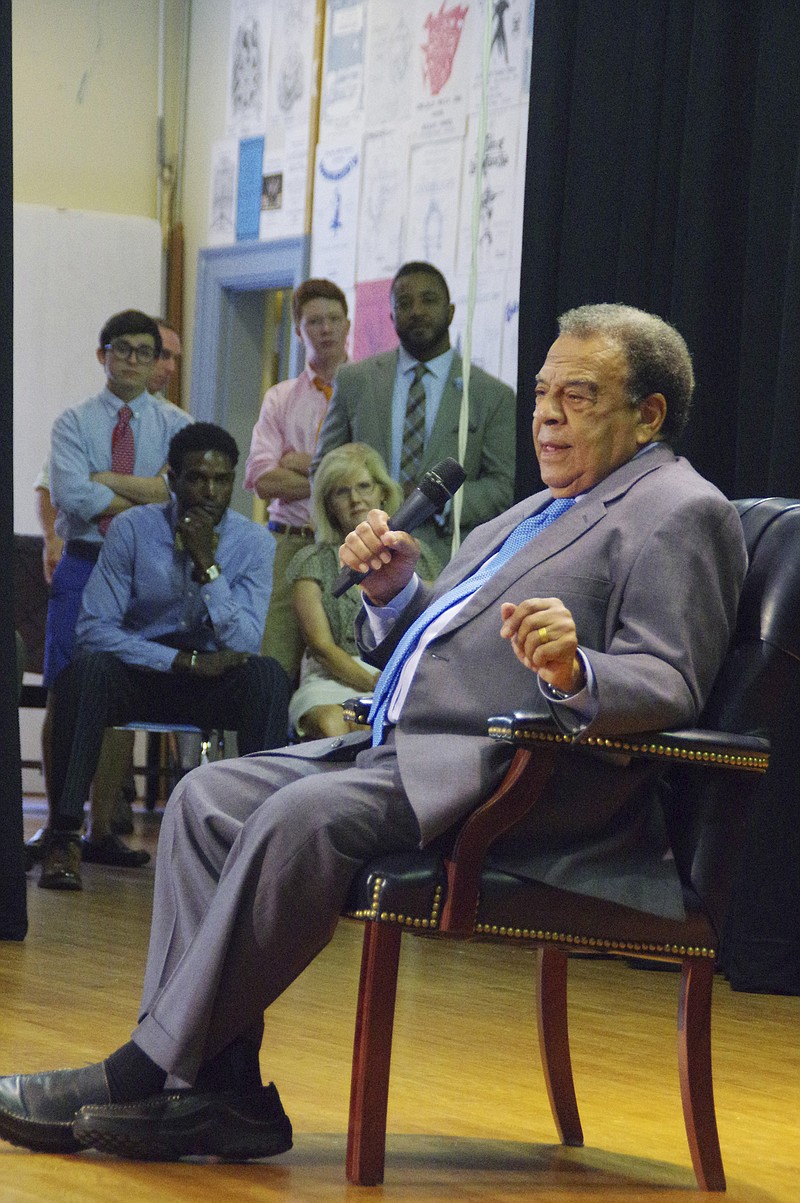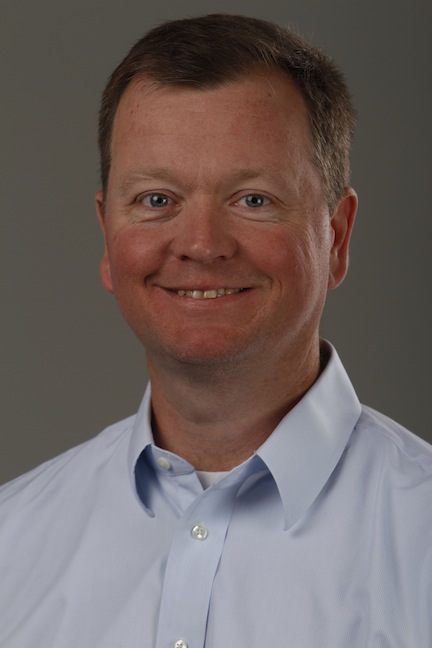It feels as if every social issue turns us back to race.
Rightly or wrongly, so much time and energy spent on so many matters has become a narrative on the differences among the people in our country.
A quarterback's preseason protest. A presidential race that should be about problems but can't shake the same theme. Community interaction with police, and vice versa, and much more.
With that singular theme reverberating in our social conscience, it was amazing to listen to a bona fide expert on race relations in this country at McCallie School this week.
When asked about it, here's what Andrew Young said:
"The problems we have in this country are not as much about race and racism as everyone wants to make it out to be," he said, sitting under a banner bearing the McCallie motto in the school's chapel. "The majority of the problems we have today in this country are about poverty."
Young is the former Atlanta mayor, U.S. ambassador and member of Martin Luther King Jr.'s inner circle during the Civil Rights era. Young spoke to a large chunk of the McCallie upper school students for more than an hour, and his message could not have been more pertinent.
We all have opinions on arguments about race - their causes, ramifications, solutions, etc. - but Young's life has been filled with confronting it.
He met Nelson Mandela in the 1970s and relayed a story about how the great South African unifier embraced the differences to create a new vision for the Apartheid-stricken country.
"Nelson Mandela said, 'We will never have a multi-racial South Africa because there are too many tribes; so the only hope is to become a non-racial society,'" Young said. "I wonder if we can do that here."
It seems like a long shot, especially given the propensity for confrontation.
When asked about the confrontations of today, he told students that what we see now, while not ideal, is magnified because we know about everything in an instant and have an instant reaction through social media.
"In 1961, 60 homes were bombed in Birmingham, and I don't even know if it was even printed in the Atlanta Constitution," Young told the captivated audience.
When asked about the racial angst in this country, Young had a response that was as rich and layered as his resume in the fight for equality.
"I met with the Black Lives Matter people, and I see what they are standing for," Young said, before adding, "they are unlovable little brats, but you have to love them anyway."
"There are no consequences with their anger."
There it is: the anger. It has become commonplace in every discussion about race.
"There is a lot of anger," McCallie director of diversity and inclusion Tawambi Settles said, "and it's like I told my students earlier this week, if you can express yourself through that anger, it limits you and what you're trying to say."
Even with high-intensity emotion, Young recognizes progress where most can't.
"The fact that so many are angry is, in my mind, progress," he said. "When we were protesting, we couldn't afford to get angry or we could have been killed.
"We couldn't do anything to provoke them because that kind of hate is a sickness."
He doesn't see that now. Does he see problems? Of course.
But every society has them, and he quickly returns to economic differences that become the starting point for so many confrontations.
There's work to be done to make relations among all groups in this country better. But what social issue in a nation of any size does not need some form of improvement?
"We can't be all the same," Young said, "but we must be in a place where our differences are seen and recognized but not feared."
Contact Jay Greeson at jgreeson@timesfreepress.com and 423-757-6343.

